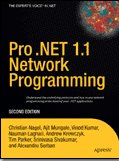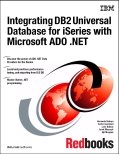You can set a number of system-wide preferences for SSL. To do so, choose Server Preferences|Encryption Preferences in the Server Manager. After you make your changes, click OK and confirm your changes. You can configure settings for SSL version, client certificates, and ciphers
SSL Version
You can specify which versions of SSL your server can communicate with. The latest and most secure version is SSL version 3, but many older clients use only SSL version 2. You will probably want to enable your server to use both versions.
Client Certificates
You can refuse any client that doesn't have a client certificate from a trusted CA. If your server is running on an internal company intranet, you might have an internal CA. If so, all your clients would have certificates issued by the internal CA. In this case you would allow only people with client certificates to connect to your server.
Ciphers
A cipher is an algorithm used in encryption. Some ciphers are more secure, or stronger, than others. Generally speaking, the more bits a cipher uses during encryption, the harder it is to decrypt the data. The list of available ciphers doesn't appear on the Encryption Preferences form unless you've enabled SSL.
When initiating an SSL connection with a server, a client lets the server know what ciphers it prefers for encrypting information. In any two-way encryption process, both parties must use the same ciphers. Because a number of ciphers are available, your server needs to be able to use the most popular ones.
You can choose ciphers from the SSL 2 protocol, as well as from SSL 3. To specify which ciphers your server can use, check them in the list. Unless you have a compelling reason not to use a specific cipher, you should check them all.
- RC4 cipher with 128-bit encryption and MD5 message authentication. RC4 ciphers are the fastest ciphers. This cipher, because it has 128-bit encryption, is the second strongest cipher next to Triple DES (Data Encryption Standard) with 168-bit encryption. It has approximately 3.4 * 1038 possible keys, making it very difficult to crack. As added security, all SSL 2.0 ciphers use MD5 (Message Digest 5) message authentication. MD5 message authentication detects attempts to modify data while it is in transit.
- RC4 cipher with 40-bit encryption and MD5 message authentication. This cipher is also an RC4 cipher, making it one of the fastest available ciphers. It has 40-bit encryption, which has approximately 1.1 * 1012 (a trillion) possible keys, making it easier to crack than encryption with more possible keys, such as 128-bit encryption. This cipher also uses MD5 message authentication to detect attempts to modify data in transit.
- RC2 cipher with 128-bit encryption and MD5 message authentication. The RC2 ciphers are slower than the RC4 ciphers. This RC2 cipher, because it has 128-bit encryption, is the second strongest cipher next to Triple DES with 168-bit. It has approximately 3.4 * 1038 possible keys, making it very difficult to crack. This cipher also uses MD5 message authentication to detect attempts to modify data in transit.
- RC2 cipher with 40-bit encryption and MD5 message authentication. This cipher is also an RC2 cipher, making it is slower than the RC4 cipher. It has 40-bit encryption, which is not as strong as 168-bit, 128-bit, or 56-bit encryption. 40-bit encryption has approximately 1.1 * 1012 (a trillion) possible keys. This cipher also uses MD5 message authentication to detect attempts to modify data in transit.
- DES with 56-bit encryption and MD5 message authentication. DES (Data Encryption Standard) is a U.S. government standard for data encryption. This cipher does not have as many possible keys as does 128-bit encryption, and therefore is not as strong. 56-bit encryption has approximately 7.2 * 1016 possible keys. This cipher also uses MD5 message authentication to detect attempts to modify data in transit.
- Triple DES with 168-bit encryption and MD5 message authentication. Triple DES is the strongest cipher available, but it is not as fast as RC4. Triple DES uses a key three times as long as the key for standard DES. Because the key size is so large, there are more possible keys than for any other cipher - approximately 3.7 * 1050. This cipher also uses MD5 message authentication to detect attempts to modify data in transit.
- RC4 with 128-bit encryption and MD5 message authentication. This cipher is the same as the SSL 2.0 version of RC4 with 128-bit encryption but uses a more secure implementation of MD5 message authentication to detect attempts to modify data in transit.
- RC4 with 40-bit encryption and MD5 message authentication. This cipher is the same as the SSL 2.0 version of RC4 with 40-bit encryption but uses a more secure implementation of MD5 message authentication to detect attempts to modify data in transit.
- Triple DES with 168-bit encryption and SHA message authentication. This cipher is the same as the SSL 2.0 version of Triple DES with 168-bit encryption, but uses SHA (Secure Hash Algorithm) message authentication instead of MD5 message authentication. SHA is a government standardized algorithm that is used to construct a message authentication code that detects attempts to modify data while it is in transit. SHA is slower than MD5, but it is stronger.
- DES with 56-bit encryption and SHA message authentication. This cipher is the same as the SSL 2.0 version of DES with 56-bit encryption but uses SHA message authentication instead of MD5 message authentication.
- RC2 with 40-bit encryption and MD5 message authentication. This cipher is the same as the SSL 2.0 version of RC2 with 40-bit encryption but uses a more secure implementation of MD5 message authentication to detect attempts to modify data in transit.
- No encryption, only MD5 message authentication. This cipher uses only MD5 message authentication to secure data. Any data sent using this cipher is not encrypted. The data is protected from modification, but it can be viewed by eavesdroppers.





